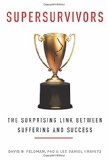June 26, 2014

The Custom-Made Brain: Cerebral Plasticity, Regeneration, and Enhancement by Jean-Didier Vincent and Pierre-Marie Lledo (Columbia University Press, 2014)
(kindle ed.), (amazon.co.uk), (UK kindle ed.)
Book description from the publisher:
Two leading neuroscientists introduce the concepts of “cerebral plasticity” and the “regenerating brain,” describing what we know now about the processes through which the brain constantly reconstructs itself and the potential benefits this knowledge could have in addressing concerns for neurological, cognitive, and emotional health.
The authors begin with a survey of the fundamental scientific developments that led to our current understanding of the regenerative mind, elucidating the breakthrough neurobiological studies that paved the way for our present understanding of the brain’s plasticity and regenerative capabilities. They then discuss the application of these findings to such issues as depression, dyslexia, schizophrenia, and cognitive therapy, incorporating the latest technologies in neuroimaging, optogenetics, and nanotechnology. Their work shows the brain is anything but a static organ, ceasing to grow as human beings become adults. Rather, the brain is dynamic, evolving organically in relation to physical, cultural, historical, and affective stimuli, a plasticity that provides early hope to survivors of trauma and degenerative disorders.
Comments (0)
- cognitive science,new books
June 24, 2014

Supersurvivors: The Surprising Link Between Suffering and Success by David B. Feldman and Lee Daniel Kravetz (HarperWave, 2014)
(kindle ed.), (amazon.co.uk)
Book description from the publisher:
Starting where resiliency studies leave off, two psychologists explore the science of remarkable accomplishment in the wake of trauma, revealing the surprising principles that allow people to transform their lives and achieve extraordinary things.
Over four billion people worldwide will survive a trauma during their lives. Some will experience severe post-traumatic stress. Most will eventually recover and return to life as normal. But sometimes, survivors do more than bounce back. Sometimes they bounce forward.
These are the Supersurvivors—individuals who not only rebuild their lives, but also thrive and grow in ways never previously imagined. Beginning where resilience ends, David B. Feldman and Lee Daniel Kravetz look beyond the tenets of traditional psychology for a deeper understanding of the strength of the human spirit. What they have found flies in the face of conventional wisdom—that positive thinking may hinder more than help; that perceived support can be just as good as the real thing; and that realistic expectations may be a key to great success.
They introduce the humble but powerful notion of grounded hope as the foundation for overcoming trauma. The authors interviewed dozens of men and women whose stories serve as the counterpoint to the latest scientific research. Feldman and Kravetz then brilliantly weave these extraordinary narratives with new science, creating an emotionally compelling and thought-provoking look at what is possible in the face of human tragedy. Supersurvivors will reset our thinking about how we deal with challenges, no matter how big or small.
See also: Book website
Comments (0)
- new books,psychology




